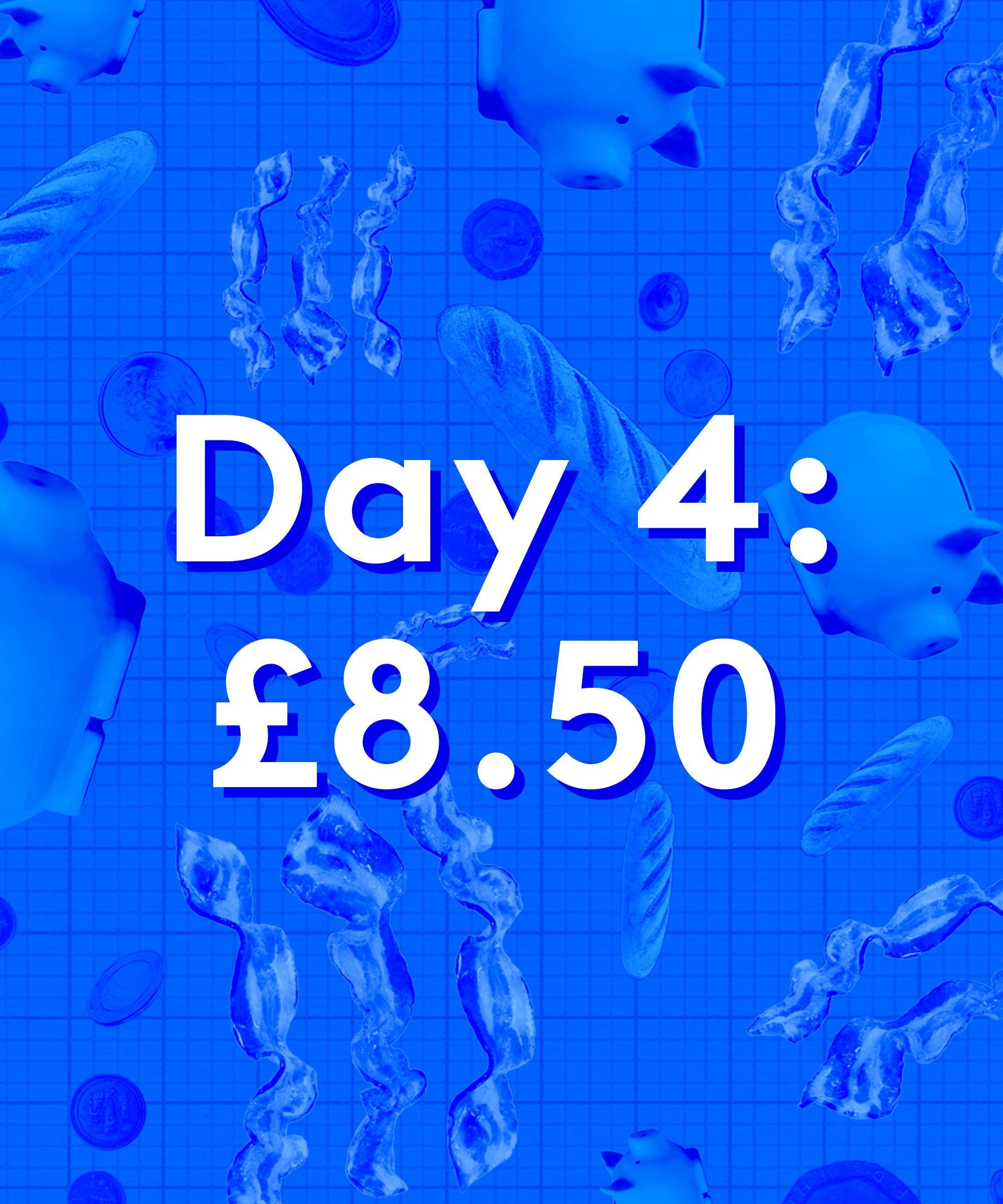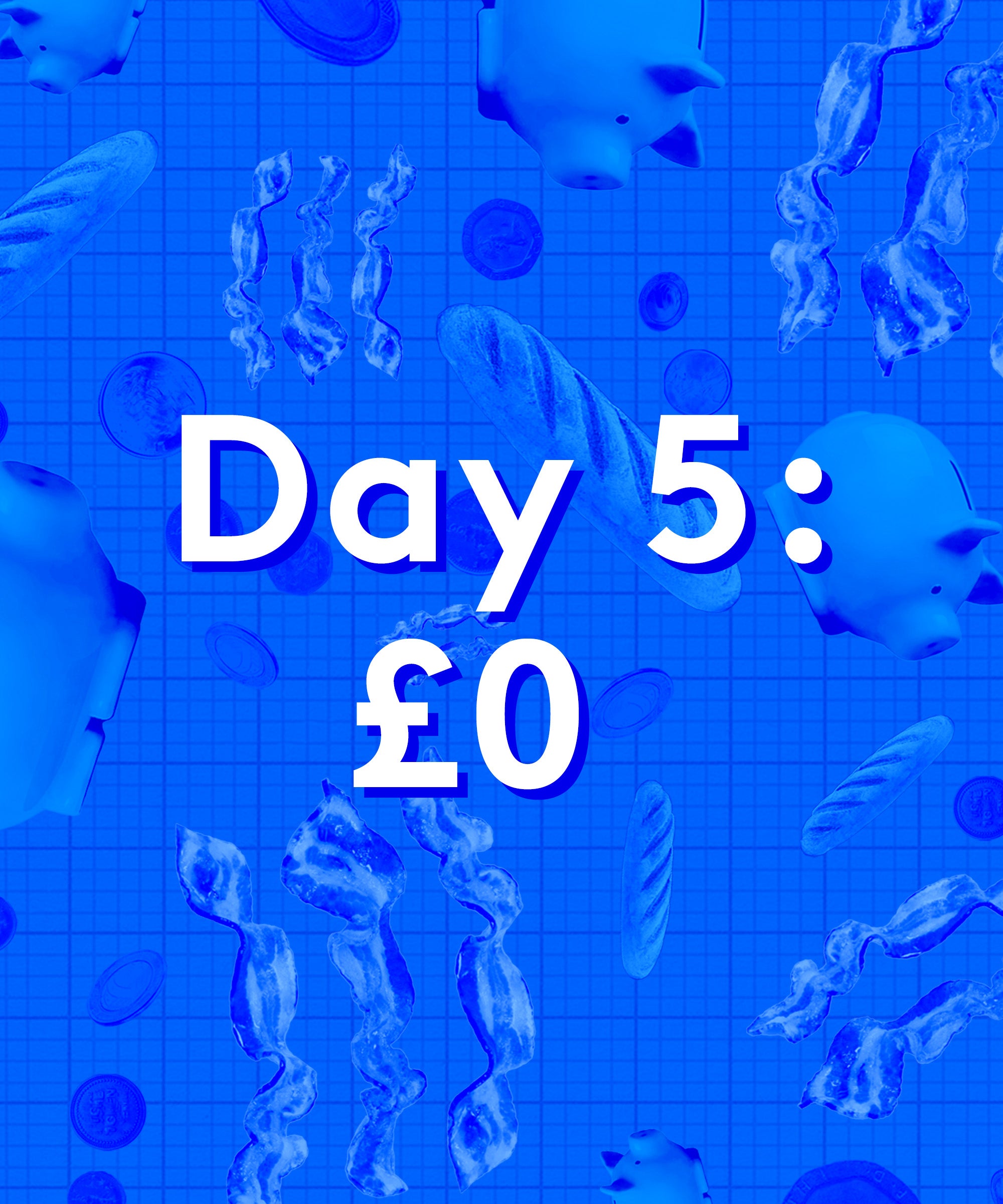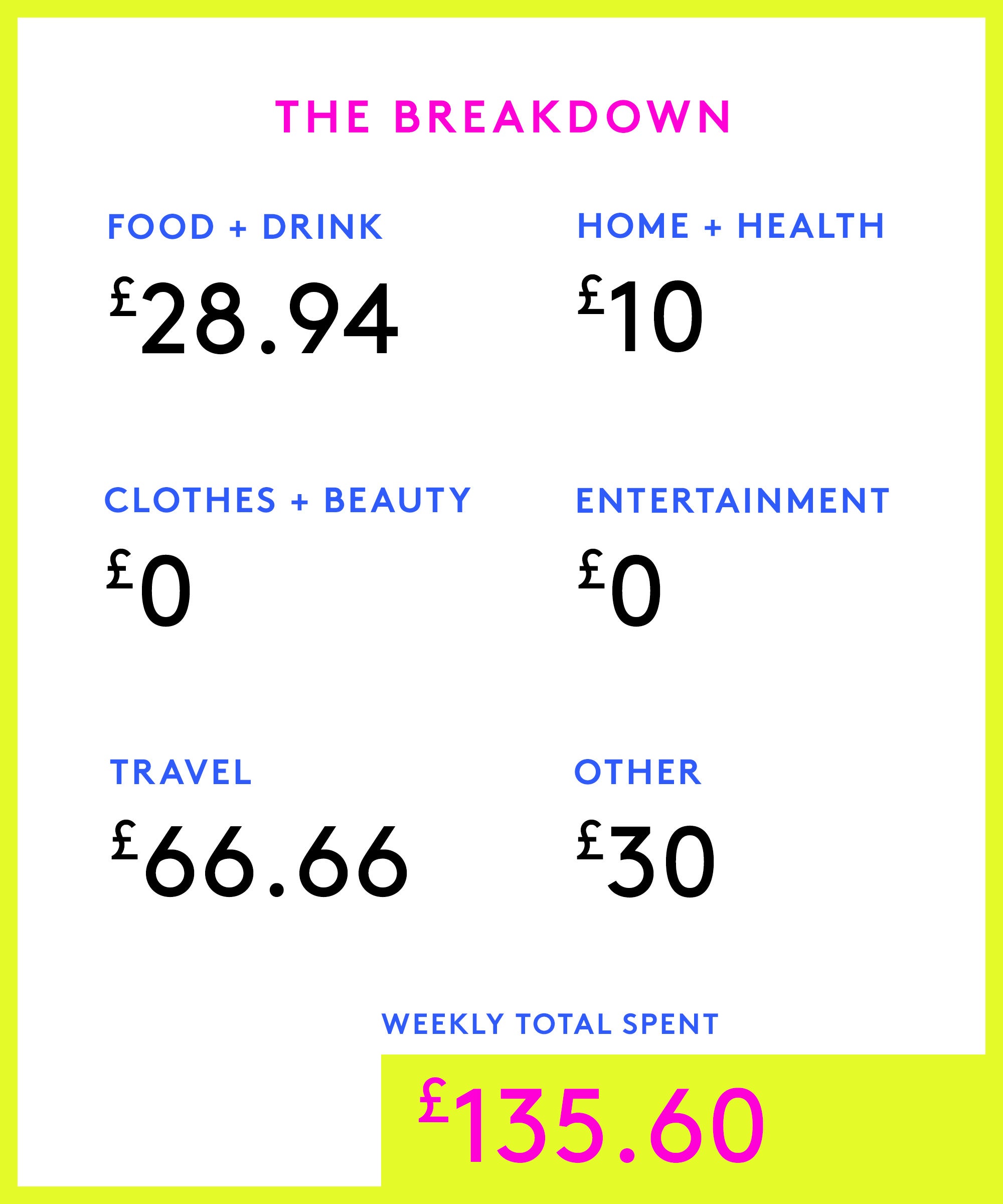This week: “I’m a 46-year-old living in London and working in publishing. I moved here 17 years ago from a European country and I love it! I’m now in a career I adore, which allows me frequent travel around the world, selling amazing books to international bookshops/distributors. I read Napoleon Hill’s book Think and Grow Rich and looked into buying a flat over 10 years ago; however it didn’t quite work out. In 2016 I lost a job and couldn’t work for about nine months due to mental health issues which depleted my finances. I didn’t do much about my finances until COVID hit and I realised how lucky I was to work full-time throughout the pandemic. At that point I had about £5,000 to my name, which I realised could have been problematic had I lost my job. By April 2021 I had accumulated a nice emergency fund and properly started investing. As I was well into my 40s, I really wanted to get my finances under control. I read I Will Teach You To Be Rich by Ramit Sethi and Financial Joy by Ken and Mary Okoroafor and have been following various finance channels on YouTube such as The Humble Penny and Nischa. Over the last three years I’ve achieved a lot more than I thought I would by following a pretty strict budget and living a frugal lifestyle. When I travel for work I have access to nice hotels and meals, which allows me a level of luxury I don’t otherwise incorporate into my daily life.”
Occupation: Senior international sales manager
Industry: Publishing
Age: 46
Location: London
Salary: £51,750
Paycheque amount: £3,052. I’ve also been getting a bonus once a year most years (around £2k net, although nothing yet this year).
Number of housemates: None.
Pronouns: She/her
Monthly Expenses
Housing costs: £1,400 rent for a one-bedroom maisonette flat with a large balcony.
Loan payments: None.
Savings: £41,158 in a Vanguard ISA (mainly in the FTSE Global All Cap Index Fund Accumulation), £11,000 in an emergency fund, £800 in a sinking fund for holidays, gifts and experiences.
Pension: £40,600 in my current pension pot. I’ve also combined pensions from previous employers in a PensionBee account that has £10,000 in it. I currently put £186 into my pension every month and my employer pays £672.
Utilities: Water, electricity and internet are included in my rent. I only pay council tax, which comes to £144 per month.
All other monthly payments: £7 SIM-only phone plan, £220 to Unicef via my employer’s Give as You Earn (GAYE) scheme (this is taken from my gross income. The aim is to donate roughly 10% of my salary). Subscriptions: None.
Did you participate in any form of higher education? If yes, how did you pay for it? I went to university in my home country from 2001 to 2006 and I have an MA in English literature. The fees were pretty low per semester — I think around £150, if that. I worked in a bookshop throughout university, which covered all my living costs as well as a semester abroad in Australia.
Growing up, what kind of conversations did you have about money?
I grew up in a very comfortable household with parents who ran their own business very successfully. We lived in a lovely village in a large house where everyone I knew had their own home and until I went to a different school aged around 10, I’d literally never met anyone who wasn’t well off. My parents prioritised an abundant and happy childhood and invested in our education and wellbeing, including ballet and piano lessons and frequent holidays, although not so much in material things such as flashy cars. I loved the idea of being independent from an early age so I often had several jobs such as babysitting — my parents didn’t quite get it and said I could just ask if I needed more pocket money, which wasn’t the point for me at all. Other than that, money wasn’t discussed much.
If you have, when did you move out of your parents’/guardians’ house?
I moved out three times in total: the first time at 19 to go to London for a year, then at 21 and finally at 23 to go to university.
At what age did you become financially responsible for yourself? Does anyone else cover any aspects of your financial life?
I’ve been financially responsible for myself on and off since the age of 19. The first time I supported myself was between the age of 19-20 while living in London. From 20-23 I did a paid apprenticeship as a bookseller in another town and my parents supported me financially (I can’t remember how much they gave me per month but I think it was around £200). Between the age of 24-28 I was financially responsible for myself. My parents offered to pay for my living costs while I was at university but I always preferred to work. At 29 I moved to London for the second time and did a three-month paid internship. During this time my parents helped me out financially. I’ve considered myself fully financially independent since then.
What was your first job and why did you get it?
I started babysitting once a week for three hours at the age of 16.
Do you worry about money now?
No, I don’t. I believe in taking action and doing my best to achieve my vision of financial freedom. I’ve never been much of a worrier but over the last three years I’ve focused even more on a positive mindset and a gratitude practice. I’m grateful for my privileged background and intend to continue to pay it forward via donating and volunteering. I expect to inherit some money before I retire, which provides further peace of mind, but I’d love to build my own wealth nonetheless.
Do you have or have you ever received passive or inherited income?
My only passive income at the moment is from my ISA but I’d love to come up with further passive income streams.

7 a.m. — Wake up, get up, make my bed, wash my face and apply moisturiser. Make a cup of tea and have a slice of sourdough bread with butter and jam. Journal and listen to positive morning affirmations by Jess Heslop on YouTube. I find her voice so soothing and it’s a good way to start the day.
8 a.m. — Log into work after a week of annual leave. Catch up on emails that came in during my absence. It was also month end, which means a report for the board is due today on what we sold the month before and how the different territories were performing. I look after sales in about 20 different countries, 10 of which I travel to on a regular basis including Japan, Germany and the UAE.
9 a.m. — I come across an email from a colleague who ran a marathon a couple of days ago and another one about a colleague’s leaving collection. Transfer money to both of them, £10.
10:30 a.m. — Brush my teeth, get dressed and have another cup of tea.
1 p.m. — Have lunch: a bagel with half an avocado and some watercress. I just started reading Tomorrow, and Tomorrow, and Tomorrow by Gabrielle Zevin, which I got from my local library and have been wanting to read for so long. I’m late to the party but it totally deserves the hype. I read for about 45 minutes in bed — the joys of WFH!
2 p.m. — Log back in, finish my reports and anything else that needed to get done.
4 p.m. — Quick break to do my dishes.
5 p.m. — Log off for the day, continue reading and potter around the house for a bit.
7 p.m. — I cook an uninspired dinner of pasta and tomato sauce followed by a piece of dark chocolate and do some life admin afterwards. There’s no cash for upcoming fees in my Vanguard account so I transfer £20.
8 p.m. — It’s my brother-in-law’s 50th birthday soon so I look at flights as he lives abroad. They’re weirdly expensive and leave at odd times (6am?!). I decide to book a Ryanair flight, which I usually avoid but it works out so much cheaper, £54.66.
9 p.m. — TfL has taken money from my account for a return bus journey into town yesterday. I’ve been using buses a lot more since the pandemic, especially when I’m not in a rush, £3.50.
10 p.m. — I cleanse my face using micellar water, then read a bit more in bed and go to sleep.
Total: £88.16

7 a.m. — Wake up, wash and moisturise my face, then treat myself to coffee and a fancy breakfast of toasted sourdough bagel with a fried egg and honey roast ham, yum! Check my bank account (I do this most mornings); the cheque I received for a dental hygiene treatment covered by my company has been cashed. I paid £80 upfront a couple of weeks ago so only end up paying £10 myself, which is great. I then listen to morning affirmations and meditate. Tuesday is usually an office day but out of the six people in my team, only one is working today, so I take the executive decision to work from home (which also saves me money on the commute).
8:45 a.m. — Log into work. I’m going on a work trip next week to Paris, which I have sorted everything out for but I need to fix a couple more appointments. I also need to plan a trip to Taiwan so I look at flights and make appointments for that. I update my to-do list and get on with it.
12:45 p.m. — Lunch break. I throw together a simple noodle soup of egg noodles, chicken stock, some broccoli and an egg and continue to read. The book I’m reading is so delightful! I also have a cup of tea.
2 p.m. — Log back in. Nothing out of the ordinary: reply to emails, plan trips and process orders.
3:30 p.m. — Make the mistake of making an iced matcha latte. I recently bought a nice matcha whisk and some proper matcha powder. It’s super tasty but I only ever allow myself three caffeinated drinks per day as otherwise it affects the quality of my sleep.
4:30 p.m. — The sun comes out after a lot of rain and I decide to go for a run in the nearby forest, which does me a world of good. The flowers are super vibrant, which makes me so happy!
5:30 p.m. — Come back from my run, finish up a couple of emails and call it a day.
6 p.m. — Meditate and potter around the house, then make dinner of chicken and mushrooms with white basmati rice.
7:30 p.m. — My brother calls to talk about a trip we have planned for next week after my sales trip to Paris. My brother, one of my sisters and I booked a large house in Alsace for 10 of my family as a birthday surprise for my parents. I’m so looking forward to it!
8:30 p.m. — Make breakfast and lunch for tomorrow as an act of service to my future self (overnight bircher muesli with apples, berries and chia seeds). When I’m in the office, I tend to keep it simple and eat a slice of rye bread topped with either cream cheese or hummus and any vegetables I have lying around. This time it’s a bell pepper and some watercress.
10 p.m. — Set the alarm for 6:30 a.m. as tomorrow is an office day. I go to bed but as expected the matcha I had in the afternoon keeps me awake for a good while before I fall asleep.
Total: £0

6:30 a.m. — Wake up. I’m very pleased to find the breakfast and lunch in my fridge. Eat my bircher and have a cup of coffee, listen to morning affirmations and get ready.
7:40 a.m. — Leave the house to take the bus and then the Tube into work. Very smooth journey today.
8:30 a.m. — I’m the first to arrive. Make a cup of tea and get a large glass of water and start work. I’ve not been to the office for a bit so it’s nice to see which new books have published and landed on my desk in the meantime. I have a little browse; there are some really nice ones this month as well as samples of not yet published books that we send to customers for review ahead of publication.
11:30 a.m. — I haven’t seen my direct report for a while and today we have a 1:1 booked in followed by her six-month review. She’s been with the company for almost nine months now but the last few weeks were so hectic we didn’t get to have this meeting until now. We set objectives for the next six months and talk about how she feels about her role.
1 p.m. — Lunch. I eat my rye bread and go for a 45-minute walk. I always try to get outside even if the weather isn’t great as it helps me to switch off from work and it’s good to get some steps in. Once a week I also head to the museum near our office for about 20 minutes and it always makes me feel so much calmer. This time I head to Tesco to pick up a Kinder Bueno and some herbal tea, £2.75.
2 p.m. — I’m back in the office and finish a few dropship orders that needed to get done by the end of the day as well as other routine tasks such as processing regular orders.
5:20 p.m. — Decide to head home but get chatting to one of my colleagues. Leave a little bit later to get the Tube/bus home.
6:30 p.m. — Decide to treat myself to a sushi takeaway. Call the sushi restaurant on my way home and pick up my order as it’s on the way so there are no delivery costs. I always order the same: a cucumber roll, an avocado roll and a salmon roll, £9.40.
7 p.m. — Eat sushi, watch a film and decide to call it a night.
9 p.m. — End up looking at new clothes to add to my capsule wardrobe for way too long.
10:30 p.m. — In bed later than planned but fall asleep pretty quickly.
Total: £12.15

5 a.m. — Wake up for no reason, get up and read a magazine that I got at the Tube station yesterday, fall back asleep.
8 a.m. — Wake up, make a cup of tea, eat the rest of my bircher. Check my bank account and see TfL has taken money off my account for yesteday’s commute, £8.50.
8:45 a.m. — Sign into work. I’ve come out of a very stressful work period and I’m feeling pretty burnt out. There’s nothing overly urgent going on today so I check the sales figures and emails that came in overnight but allow myself a slower pace while it lasts.
1 p.m. — It’s lunchtime but after my chia bircher I’m not really hungry. Write this Money Diary, which is such an interesting exercise. Especially since I started looking into my personal finance three years ago, I’ve really enjoyed reading about other people’s situations and habits and I thought it would be fun to contribute one myself.
2 p.m. — Break for lunch, later than usual. Toasted sourdough bagel with cream cheese and bell pepper. Realise I’m still in my pyjamas so I get dressed and spray some perfume to lift my mood. I also do my dishes, which motivates me further.
3 p.m. — I remember there’s a book launch at my local bookshop for one of my publisher’s new books and I decide to head there after work. On Thursdays I usually watch TV with my sister and brother-in-law online. We started doing this during the pandemic and it became a habit that stuck and it’s so much fun!
3:30 p.m. — Continue to work through my Trello to-do list while having a large mug of Tulsi tea and a pear.
7 p.m. — Pop on some makeup and jewellery and head to the book launch (it’s only a 10-minute walk, yay!). The party is in full swing and I chat to two colleagues and an author over a glass of prosecco and some nibbles. Such a fun evening!
8:30 p.m. — The book launch comes to a close and I realise I forgot to call my sister at 8 p.m., oops.
9 p.m. — Call her when I get home. We watch some TV and chat while I cook a late dinner of potato and sausages. Take my supplements.
11:30 p.m. — Go to bed far later than planned.
Total: £8.50

7:20 a.m. — It’s Friday! Wake up, make my bed, go downstairs and make a cup of coffee and journal. I aim to journal a few times per week and it really helps with my mental health, although I’ve not quite done it enough this week.
8:45 a.m. — Toast some rye bread and have it with butter and jam and make a cup of tea. Log into work. Send my colleagues some pictures of the book launch I took yesterday and process a bunch of orders that came in overnight.
11 a.m. — Quick break to wash the dishes, get dressed and put on laundry.
12:45 p.m. — Break for lunch: soup of goat’s cheese tortellini, carrots, broccoli and chicken stock. I read my book in bed and hang up the laundry afterwards.
2 p.m. — Back to work. Friday afternoons are great to catch up on loose ends. Contact our US office to set up a new system for me and write up the assistant’s review meeting notes.
5 p.m. — Sign off work, hoover the flat and wipe the surfaces and mirrors, which always puts me in a good mood for the weekend. Run a Lush bath and continue to read all evening.
7:30 p.m. — Quick dinner and more reading.
10 p.m. — Wash and moisturise my face and go to bed.
Total: £0

8 a.m. — I wake up, make my bed and go downstairs to have a cup of coffee and a bagel with butter and jam. I then head back to bed to read some more with a cup of tea. Such a wonderful way to start my Saturday!
11 a.m. — I head to Sainsbury’s to pick up some groceries. At this point I’d usually get in a weekly shop but I’m off to Paris soon so I only buy a few things for the next few days including snacks, fruit and vegetables for dinner tomorrow and a bottle of rosé, £16.79.
12 p.m. — The weather is lovely so I sit on the balcony, read my book, drink wine and admire the view. Glorious! I really don’t know why I don’t spend more time on the balcony as it is such a luxury (although it’s south-facing and tends to get super hot when the weather is nice). I think about whether I should finally invest in a parasol and some nice plants as I’ve not decorated it much at all.
1 p.m. — I have another tortellini soup and a bell pepper for lunch and decide to take it easy today.
4 p.m. — Have a nap for about an hour and spend the rest of the afternoon reading in bed. As much as I enjoy having a balcony, for me bed is the place to be when it comes to reading (unless I decide to invest in a nice sun lounger, that is).
7 p.m. — Make cheesy pasta and have some more rosé.
10 p.m. — My skin has been a bit temperamental of late, probably because I’ve tried a few new products and/or for hormonal reasons. To give it a break I just do a quick cleanse with micellar water and go to bed.
Total: £16.79

7:30 a.m. — Wake up. I always wake up early these days, even on a Sunday — I think I have perimenopause to thank for this but I don’t really mind. I make my bed (this has also become a habit even on weekends as it makes the house look nice and tidy), go downstairs, have a cup of coffee and jam and butter on rye bread.
9 a.m. — Watch some YouTube videos and walk over to my local retail park, which takes about half an hour each way, to pick up some storage boxes at Dunelm, £10. I’ve been meaning to tidy/reorganise my kitchen cupboards and I’m finally doing it, yay!
1 p.m. — When I get home I make the rest of my goat’s cheese tortellini and have an ice cream. I finally get my kitchen drawers reorganised (I’m very proud of myself!), have more rosé and read some more. I managed to get a blister on my walk as I was wearing sandals — one more reason to take it easy and stay at home reading (as if I needed an excuse, haha).
7 p.m. — Make some tofu, basmati rice and broccoli, watch a film and read some more. I’m about to finish my book but decide to read the last chapter tomorrow. It’s a glorious book that I didn’t expect to like as much as I did, although I would have preferred it without the last chapter — it’s just too long and the ending didn’t quite work for me. Still, couldn’t recommend it more!
10:30 p.m. — Brush my teeth, cleanse my skin and go to bed.
Total: £10

Food & Drink: £28.94
Clothes & Beauty: £0
Home & Health: £10
Entertainment: £0
Travel: £66.66
Other: £30
Total: £135.60
Conclusion
“I’m pleased about how little I spent this week. I have a busy week coming up where I’ll also be spending quite a bit of money so it was nice to keep this week pretty chill and low-key. My biggest expense overall is my rent and I often wonder about possible alternatives (flatshare, moving out of London, buying a place) but currently I’m enjoying it and it is a quiet and peaceful haven for me, which is essential for me as an introvert. I would love to lower my accommodation costs (and/or increase my salary) but overall I think I’m in a good financial position.”
Like what you see? How about some more R29 goodness, right here?
Money Diary: An Investment Manager On £101,000